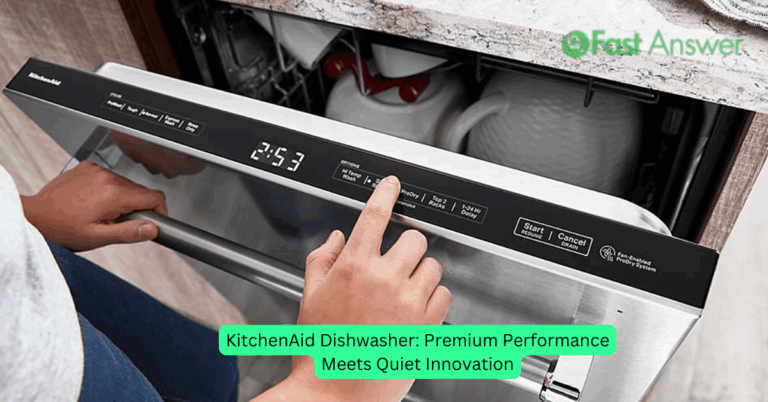Home Appliance Repair vs Replacement Guide: How to Decide What’s Best for You
When a home appliance breaks down, homeowners often face a difficult decision: should they repair the appliance or replace it? With rising repair costs and advancements in newer models, the choice isn’t always clear. It’s important to consider factors like the age of the appliance, repair costs, energy efficiency, and the long-term benefits of replacement. This home appliance repair vs replacement guide will walk you through the factors that should influence your decision, helping you save money and avoid unnecessary stress.
Age of the Appliance: When It’s Time to Let Go
The age of your appliance plays a crucial role in deciding whether to repair or replace it. Most appliances have a typical lifespan: for instance, refrigerators last around 10-15 years, while washing machines may last 8-12 years. If your appliance is approaching or has surpassed its expected lifespan, it may be more cost-effective to replace it rather than repair it. Older appliances are also more prone to breakdowns, and finding replacement parts can be difficult and expensive. If your appliance is still within its prime years, however, repairing it could be a more economical choice.
Cost of Repair vs Cost of Replacement: Finding the Best Value
One of the key factors to consider when deciding between repair and replacement is the cost. If the repair cost is more than 50% of the price of a new appliance, replacing it is often the better option. Repair costs can vary depending on the type of appliance, the extent of the damage, and the availability of parts. However, keep in mind that a new appliance may come with warranties, energy-efficient features, and modern technologies that make it more cost-effective in the long run. Weigh the immediate repair cost against the long-term benefits of a new, more efficient model.
Energy Efficiency: How New Models Can Save You Money
Older appliances tend to consume more energy, leading to higher utility bills. If your appliance is outdated, replacing it with a more energy-efficient model can lead to substantial savings over time. For example, newer refrigerators, dishwashers, and washing machines use less water and electricity, thanks to advancements in technology and stricter energy standards. If your appliance is costing you more in energy bills than it would to buy a new, energy-efficient version, replacing it might make more sense. Additionally, many new models come with smart features that optimize energy usage, providing further savings.
The Frequency of Breakdowns: Signs You Might Need a Replacement
If your appliance has frequent issues and requires repairs more than once or twice in a year, it may be time to consider replacing it. Ongoing repairs can add up quickly and become a source of frustration. Constant breakdowns could be a sign that the appliance is nearing the end of its useful life, and spending more money on repairs may not be the best financial decision. A new appliance not only resolves these frequent problems but may also provide improved performance and efficiency, ultimately saving you time and hassle.
Environmental Impact: Replacing or Repairing with Sustainability in Mind
If you’re environmentally conscious, repair may seem like the more eco-friendly choice. Extending the life of an appliance through repair prevents it from ending up in a landfill and reduces the demand for manufacturing new products. However, if the appliance is significantly inefficient or outdated, replacing it with a more energy-efficient model may have a better overall environmental impact. Many new appliances are designed to be more sustainable, using fewer resources and producing less waste. Consider the environmental benefits of both repair and replacement when making your decision.
FAQs
1. How do I know if my appliance is worth repairing? If the repair cost is more than 50% of the cost of a new appliance or if the appliance is nearing the end of its expected lifespan, it may be better to replace it.
2. Are there any benefits to repairing my old appliance? Repairing your appliance can be cost-effective if it’s still in good condition and hasn’t exceeded its expected lifespan. Repairs can extend the life of the appliance, especially if it’s an energy-efficient model.
3. Is it always better to replace an appliance that’s 10 years old? Not necessarily. If the appliance is still working well and the repair cost is low, it may be worth keeping it. However, if it’s inefficient, outdated, or constantly breaking down, replacing it could save you money in the long run.
4. Can replacing an appliance save me money? Yes, replacing an old, inefficient appliance with a newer, energy-efficient model can reduce your utility bills significantly. Newer models are designed to consume less power and water.
5. How can I make my appliance last longer? Regular maintenance and timely repairs can help extend the life of your appliance. Clean filters, check for leaks, and stay on top of small issues to prevent larger, more expensive problems down the line.


